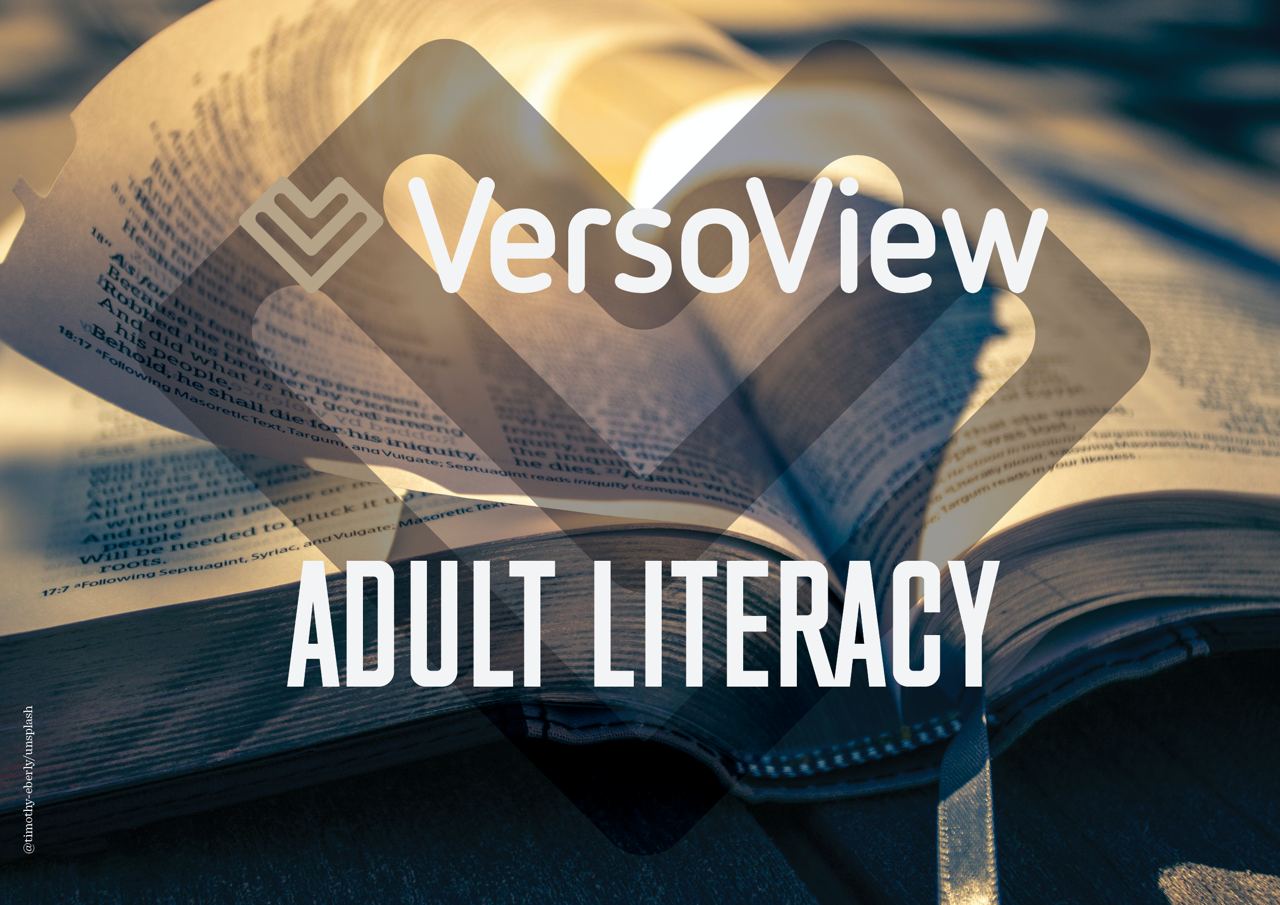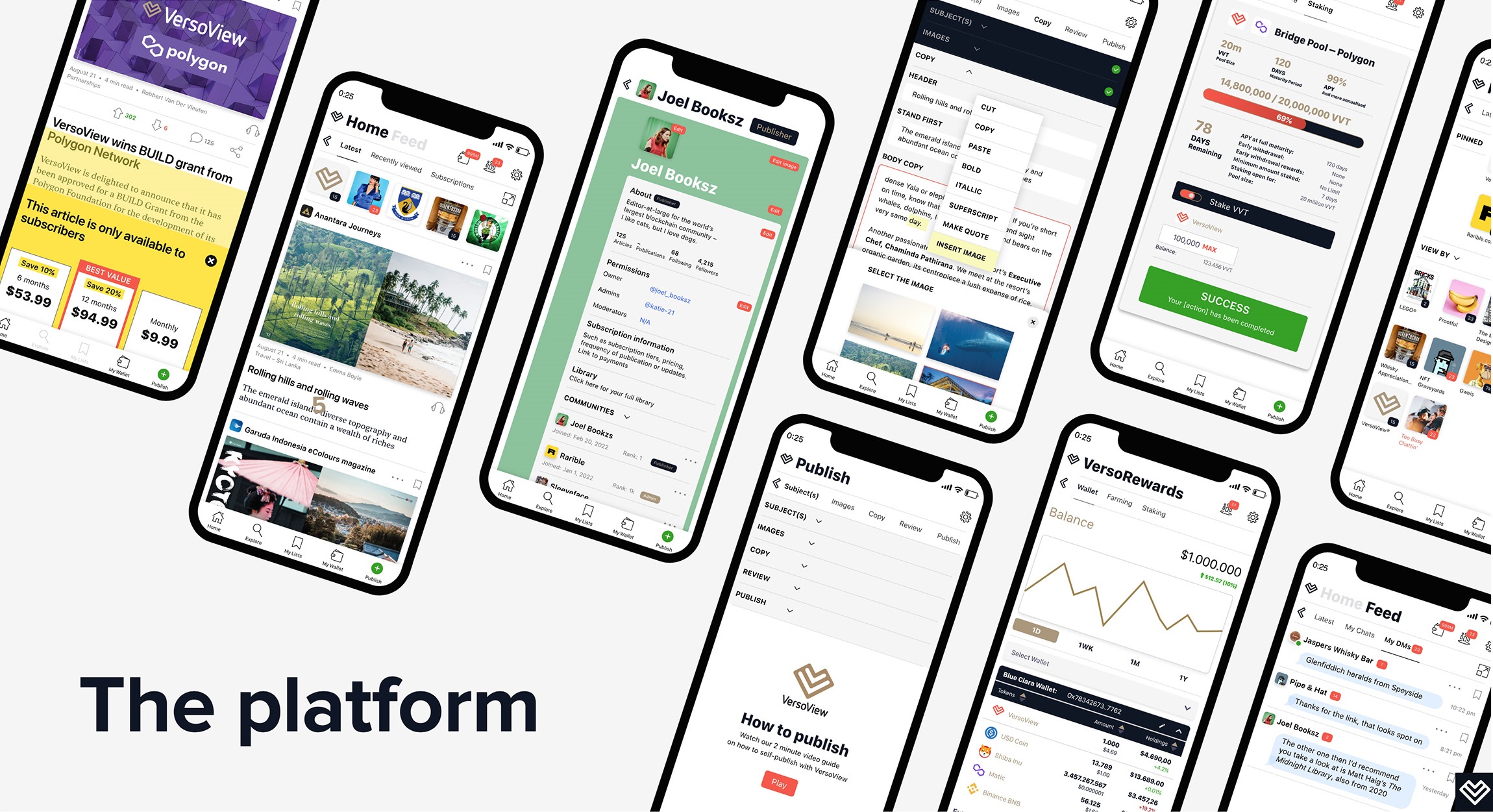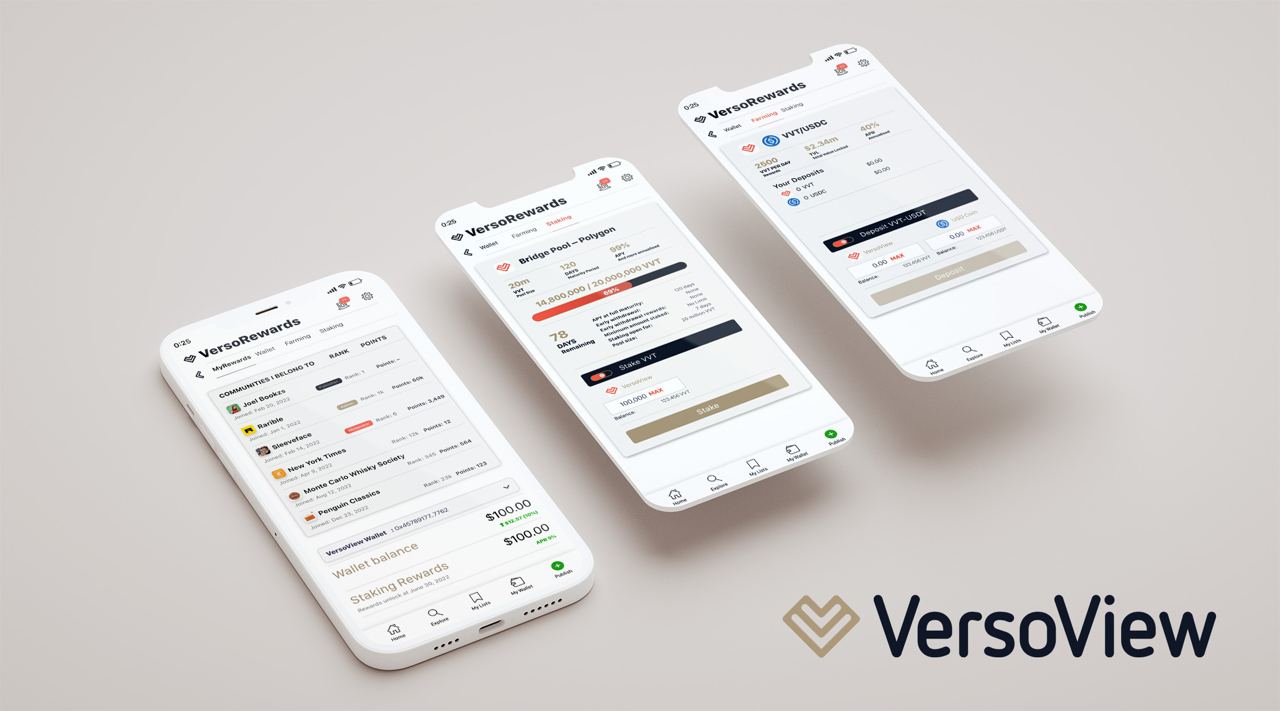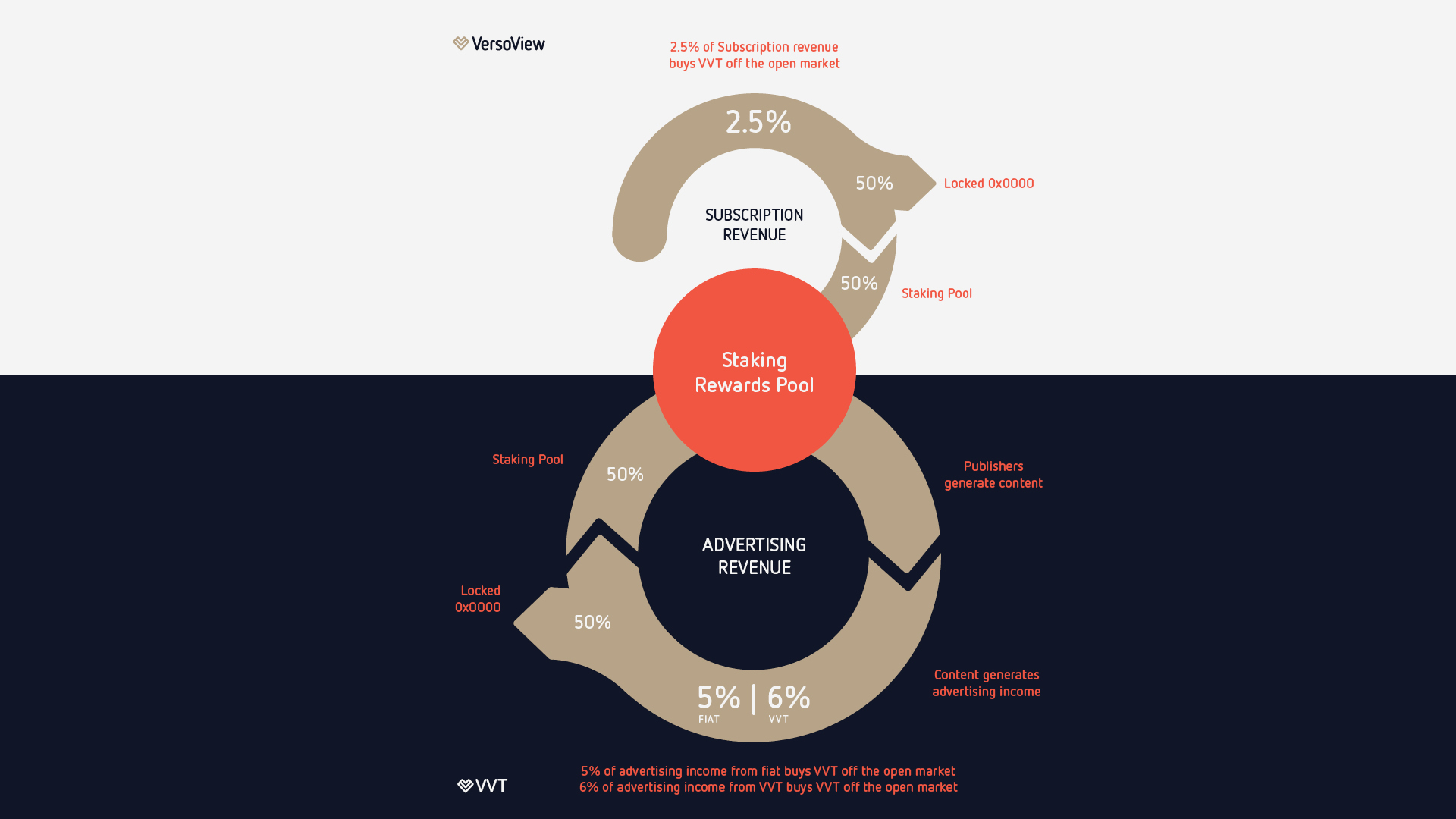“One of the great solvable problems of our time.”
British A. Robinson, President and CEO of the Barbara Bush Foundation for Family Literacy
You’re about to read, or skim-read, this article as it’s of some interest. Before you do, please stop and congratulate yourself on the fact that you can. In America alone, 130 million adults would not be able to do so with your fluidity, and that’s something we want to tackle at VersoView.
Admitting that you may have difficulty with reading and writing is a stigma. There’s an assumption – especially in countries where education is available and often partly free – that adults can effectively read and write, but the impact of being an illiterate adult can be overwhelming.
In 2020, Australian Rugby league star turned actor, Ian Roberts, confessed that he only learned to read at the age of 36. Roberts is also the first openly gay player in the league, where testosterone levels are off the charts. “Coming out as gay was a breeze in comparison to publicly admitting difficulty in reading and writing”, he told Adult Learning Australia.
In Robert’s native Australia, 44% of adults do not have sufficient literacy skills for everyday life, such as reading highway signs, filling in forms, and holding down jobs. Reported rates have increased in Australia with the advent of Covid, where those with literacy issues were no longer able to seek help from their broader community.
In Australia, 68% of callers to a Reading Writing Hotline were from English-speaking backgrounds and went through school in Australia. 60% of callers were men, mostly in the 44-65 age group.
In England 1 in 6 (around 7.1 million adults) have ‘very poor literacy skills, while in neighbouring Scotland this rises to 1 in 4 adults (26.7% / 931,000). Studies for the documentary, H is for Harry, quote that nine million UK adults are ‘functionally illiterate. H is for Harry, which was released on World Book Day, March 7, 2018, takes an unflinching look at the impact of illiteracy. The then 11-year-old Harry Grant, one of those followed in the documentary, says, “It’s just repeat, repeat, repeat. I had it, my dad had it, and now my son’s going to have it.” Harry is a white working-class boy, a demographic which usually scores well in school.
With the huge population the USA enjoys, illiteracy numbers are massive, both by sheer size but also by percentage. According to the U.S. Department of Education, 54% of adults 16-74 years old lack proficiency in literacy – that’s 130 million people. The U.S. standard is that of below the level of a sixth grader.
Of those 130 million, ProLiteracy.org puts forward a staggering 36 million US adults, or one in five, who cannot read, write or do basic math above a third-grade level.
According to the 2020 study by the Barbara Bush Foundation for Family Literacy, low literacy levels could be costing the US economy $2.2 trillion a year. President and CEO of the Foundation, British A. Robinson commented, “America’s low literacy crisis is largely ignored, historically underfunded and woefully under-researched, despite being one of the great solvable problems of our time.”
Income is strongly linked with literacy, so it stands to reason that low-cost, or free resources can pave the way for increased literacy. The World Literacy Foundation sets a figure of around £37bn a year for the UK economy, with those more likely to be unemployed or in low-paid jobs, citing links with a shorter life expectancy, depression and obesity.
If you can’t read, it stands to reason you will feel more isolated, and lack self-esteem. And the sense of shame and secrecy goes hand-in-hand. Ian Roberts, the ruby player, told Adult Learning Australia, “Learning how to write and read was almost like a rebirth. This whole other world opened up. It was incredible.”
Why does literacy matter?
Hopefully reading this you already have some empathy, but we’re excited to spell it out. With improved literacy comes improved confidence, and a lasting impact not only on the life of the individual but on their family members and the communities around them. Something as simple as being able to read directions from signs, or as delightful as being able to read what the special of the day is on a chalkboard menu. These are things that many of us take for granted, but for those affected are tangible moments of lifelong joy.
So why is VersoView joining in the discussion over literacy?
VersoView is positioning itself as the social media conduit for engaging, community-centric content driven by articles and editorial features from magazines, blogs and other media, which is presented in a clear, interactive manner. VersoView widely differs from other social media channels as it publishes ‘long-form’ content, that is writing generally between 1000 and 7000 words (and longer). By comparison, Twitter, with its 140 characters, is very much ‘short form’.
VersoView has made its purpose to eradicate adult illiteracy across the globe.
VersoView is more than a platform, is it the vehicle that will allow us to fulfil our purpose of helping adults who struggle to read and write. It sounds a little corporate cliché to install a purpose within an organisation, especially at such an early stage in our development. For us though, a platform that champions long-form, community-driven content, it just makes sense. It fits, and it is a problem that is solvable.
There’s lots of strong evidence to show this is a solid business decision as well. According to the 2022 McKinsey & Company report, ‘Purpose; Shifting from what to how’, only 7% of Fortune 500 CEOs “believe their companies should mainly focus on making profits and not be distracted by social goals”, while the same report noted that 93% of consumers questioned stated that companies should be more than machines to make money.
Ey.com – “90% of executives recognize the importance of having “an aspirational reason for being which inspires and provides a call to action for an organization…and provides benefit to society,” according to an EY / Harvard Business Review Analytic Services survey.” Some call this the ‘trust deficit where there is growing distrust for large corporations.
There is also a proven benefit for corporations with a meaningful purpose. They attract and retain better quality of staff, and more loyal customers, make more money and are better at transformational change and innovation. A corporate purpose becomes the foundation of structure and strategy, which in itself inspires employees and customers alike and builds trust.
Rebecca Henderson, the John and Natty McArthur University Professor at Harvard Business School said on Ey.com, “The sense of being part of something greater than yourself can lead to high levels of engagement, high levels of creativity and the willingness to partner across functional and product boundaries within a company, which are hugely powerful. Once they’re past a certain financial threshold, many people are as motivated by intrinsic meaning and the sense that they are contributing to something worthwhile as much as they are by financial returns or status.”
Community-driven
VersoView is community-driven, and we wish for as many individuals as possible to have the choice of enjoying the rich content we will offer. And of course, we’d love as many subscribers as we can, but we will be in a unique position to offer real, impactful change for the lives of individuals and their families, and that is what will drive us to succeed.
We are currently in early-stage discussions with charitable foundations across the globe to see how our platform can assist with free resources, tools and assistance in what we hope will be a shared quest. Our platform integrates audio options for users to listen to content, so that will naturally be one starting point, but there will be many. There is no point in us starting from scratch. There are thousands of educators and volunteers who already make a difference in this space. Instead, we will directly fund, create best-of-best solutions, and seek new solutions that our AI engines and platform may unfold.
Throughout, the anonymity of the individual is paramount.
If you would like to donate, help or volunteer there are numerous organisations that would welcome you. ALT.org.uk in the UK / ProLiteracy.org in the US / ala.asn.au in Australia are good examples.
About VersoView:
VersoView is an engage-to-earn social media platform featuring meaningful tokenized rewards.
Brands, businesses, educational partners, organizations and publishers can host and engage their communities around their content and reward them with branded Social Tokens within the VersoView ecosystem.
Be part of the story ★ Website ★ Twitter ★ Telegram (EN) ★
ENDS.






